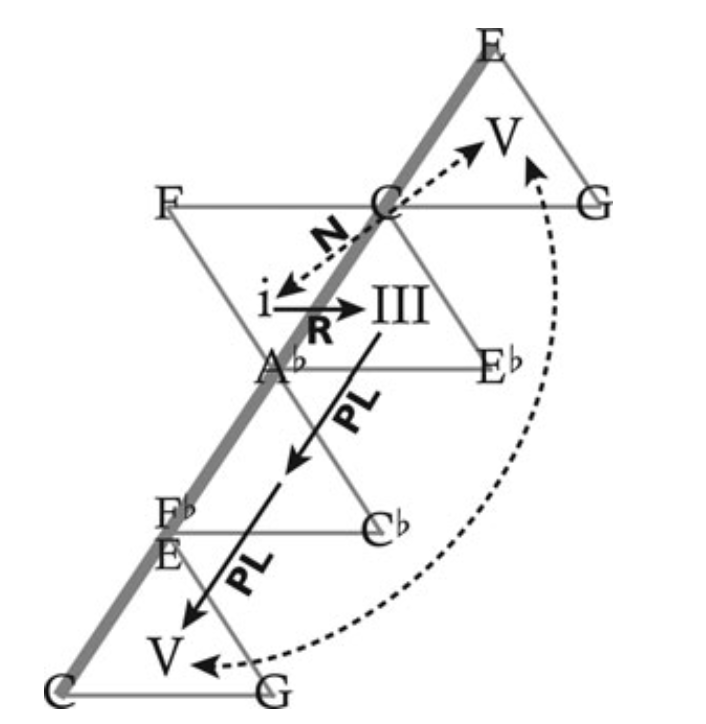This is an old post but I felt it slipped into some crack somewhere but still deserves a reply. It’s a very general question so this will be a pretty general reply, though.
My first thought is to just listen to nore music/listen to music more often, especially in an active sense (not just passively having some background music). So this would mean paying attention to the music, even if it’s as simple as thinking about which parts you like more. You don’t even need to know how to analyze music to think about music you like or find interesting. All you need is a sense of curiosity about wanting to understand what you’re listening to.
Once you’ve found what you like, start trying to figure out what it is about what you like that makes you like it. This is where music theory comes in, but you can approach this as simply as asking/discussing about it in a place like this where you can bounce your ideas off of other people, and learn some theory in the process. It might not be the thing you’re actually looking for, but it will at least be some useful information for further thinking about music and analyzing it. And even if you’re a complete noob to music theory, you’ll start to pick up some basic concepts pretty quickly as long as you’re interested in understanding something.
If you’ve learned enough theory to be able to make some sense of the structures and aspects of music on your own, you can apply this to your own active listening, by thinking of relevant music theory concepts as a way to help figure out what makes music tick for you. That in turn can help train you to hear the various elements of the music that are relevant to you.
What @quixotic120 said.
You can look at what they do in music school by searching for musicianship/aural skills syllabi.
- https://arts.ufl.edu/site/assets/files/162483/mut_1241l_aural_skills_1_syllabus.pdf
- https://digitalmeasures.utep.edu/ai/sbnordstrom/schteach/Aural Skills I Syllabus Fall 2021-2.pdf
- https://www.uttyler.edu/music/files/syllabi/syllabus-musi1117.pdf
- https://s3.amazonaws.com/mirror.facultyinfo.unt.edu/jjh0137/schteach/2942_2170_1410_008_syllabus.pdf
- https://s3.amazonaws.com/mirror.facultyinfo.unt.edu/jjh0137/schteach/19464_2170_2510_3_syllabus.pdf
- https://www.nyu.edu/content/dam/nyu/globalPrgms/documents/prague/academics/spring2022/Syl_Prague_MPATC-UE9009P01Pudlak_Spring2022.pdf
- https://uh.edu/~tkoozin/theory1/
These are the usual topics (more or less in the order they are introduced, but about halfway through become simultaneous):
- Interval identification
- Chord quality identification (triads, later seventh chords)
- Scale identification (usually major and natural/harmonic/melodic minor, but some do modes and other types of scales too)
- Solfège
- Sight singing (rhythmic and melodic)
- Conducting
- Melodic dictation
- Rhythmic dictation
- Harmonic dictation
- Polyphonic dictation
Keep in mind that you’ll do these with a concurrent course in theoretical topics.
I should also emphasize that having a good command of theory is of tremendous help to developing your ear; a lot of what we do, especially for hard-to-hear things like inner voices in a thick texture, is logical inference based on things we know. There’s a video by Sean Wilson that demonstrates this nicely.
Wow thanks a lot I’ll check it !
That Sean Wilson video is a perfect demonstration of what I felt about thoroughbass. Seems to tell me these truths underlying the skill of an improviser remain between jazz or gospel and baroque. I think it indicates all musicians should attempt some of that even if they’re not a composer or not a performer, because it helps musicianship so much.
For me, chunking has worked tremendously, also working with a keyboard instrument (for me piano) and working on beginner continuo. I am not really any good at piano yet it’s sufficient for me to experience massive progress in my ear. The important other aspect was 1) playing everything in different positions to reinforce to the ear to hear inner voices or to know the voice leading of register shifts and 2) improvising between ear and instrument, maybe you try some curious stuff based on using different tones to prepare dissonances.
By chunking, I mean being able to summon common phrases from the language of a style. Someone could call a progression “I V6 vi7 V7/V V” but bam it’s just a modulating Prinner. This also comes to identifying sequences or common derivative procedures ie “If A is done, B will be likely.” In the style you want your ear to be better in, you want to be able to recognize those chunks so that your brain can access that entire chunk to reduce processing load. As much as raw ear ability with relative pitch and tertian chord labeling works, the ear of a musician also involves pattern recognition and a metaphorical databank of memorized reference material.
Aurals/melodic dictation practice/sight singing. Whatever you want to call it.
Not the most fun but effective


